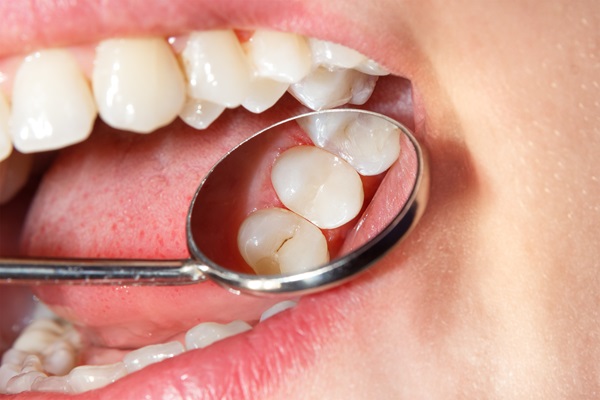Taking a Look at Options for New Dentures

There are multiple denture options if you are looking to replace missing teeth. These solutions can help prevent many unwanted side effects of tooth loss, leading to better oral and overall health.
The loss of permanent teeth can happen for various reasons, from severe tooth decay and gum disease to traumatic injuries or underlying health conditions. No matter the cause, tooth loss should always be taken seriously and treated as soon as possible. Even the loss of just one or two teeth can significantly impact dental health.
Missing teeth can cause damage to surrounding teeth by leading to uneven biting forces and chewing patterns. They can also cause alignment problems, resulting in oral pain and an increased risk for tooth decay. Tooth loss can even impede proper digestion and lead to speech issues. Fortunately, replacing missing teeth with dentures is an effective solution that prevents unnecessary complications.
When it comes to choosing the right type of dentures for your unique situation, it can feel overwhelming. However, understanding the differences can help you in the journey of adjusting to new dentures. Here is what you need to know about the different types.
What are dentures?
Dentures are artificial teeth and gums that are designed to replace natural teeth. Whether they replace all of your teeth or just a few that are missing, dentures are specifically designed to fit your mouth by your dentist.
While dentures used to be constructed out of porcelain or plastic, modern dentures are made out of hard resin. Although these materials are sturdy, they are more delicate than natural teeth and can chip if not handled properly. There are three main types of dentures.
Full dentures
Full dentures, also known as complete dentures, consist of an upper and lower set of porcelain or acrylic teeth. This option is suitable for people who have lost all of their teeth, as it can provide a realistic appearance and help boost confidence.
While conventional dentures are ready to be placed about eight to 12 weeks after teeth removal, immediate full dentures are crafted in advance and can be placed as soon as the teeth are removed. Full dentures can last from five to 10 years when cared for properly.
Partial dentures
If you only have a few missing teeth, partial dentures can be designed to fill in these gaps. These types of dentures are constructed from acrylic material and contain a pink base attached to a metal piece that holds the dentures in place. You can remove partial dentures whenever you want and easily snap them back in if you are still adjusting to new dentures.
Temporary dentures
As the name suggests, temporary dentures are typically placed right after the teeth have been removed but before your permanent dentures have been fitted. This short-term solution can help you carry on with your everyday life while waiting for your dentures to be placed. Temporary dentures are also an excellent tool to aid in adjusting to new dentures, especially if you have had issues with sensitive teeth or gums in the past.
Implant-supported dentures
For those who need full dentures and want to enjoy a more secure fit, implant-supported dentures can be a good option. Between four and six implants are strategically placed along the upper and/or lower gum line to give the appliances a stable structure to attach to. While the implants are permanent, the dentures can be removed as needed for cleaning or repairs. This treatment option does require healthy bone structure, surgery, and a lengthy recovery period, so it may not be right for every patient.
How do you take care of dentures?
Just like normal teeth, dentures need to be cleaned every day due to the buildup of tartar, plaque, and bacteria. To clean your dentures, remove them from your mouth and run warm water over them to dislodge food particles between the teeth or along the gums. Next, use a denture brush and a gentle soap to clean your dentures. If you do not have a denture brush, you can use a toothbrush with soft bristles. Be sure not to use normal toothpaste or an electric toothbrush, as these can damage your dentures.
Conclusion
Dentures are used to replace missing teeth and improve the appearance of your smile. Whether you opt for full, partial, or temporary restorations, they can allow you to feel more confident in your smile.
Request an appointment here: https://www.smilesinpa.com or call Jenny Chen Pediatric and Family Dentistry at (610) 400-1588 for an appointment in our West Grove office.
Check out what others are saying about our dental services on Yelp: Dentures in West Grove, PA.
Recent Posts
Dentures can replace your missing teeth. However, you might wonder if you can drink and eat as usual with the false teeth in.The good news is that with the right steps, it is not difficult to enjoy your favorite foods and drinks once more. Keep reading to learn more about how to drink and eat…
Millions of people wear dentures that help them to eat and speak properly. But getting used to wearing dentures can take a while as your mouth adjusts.Therefore, to make your denture experience as positive as possible, you should know what to expect when getting dentures. Read on to learn more about dentures and how they…
When you have dentures, you no longer have to hide your smile or avoid being around other people. This treatment can also improve your oral health and allow you to eat a wider range of foods.Of course, wearing this apparatus does not let you eat anything. There are still certain foods you should avoid, so…
In some form, dentures have been around for centuries. This type of artificial teeth has helped countless people feel good about their appearance and eat most foods again.If you have missing teeth or no teeth at all, talk to your dentist about this option. You can learn what this process entails and how it can…


